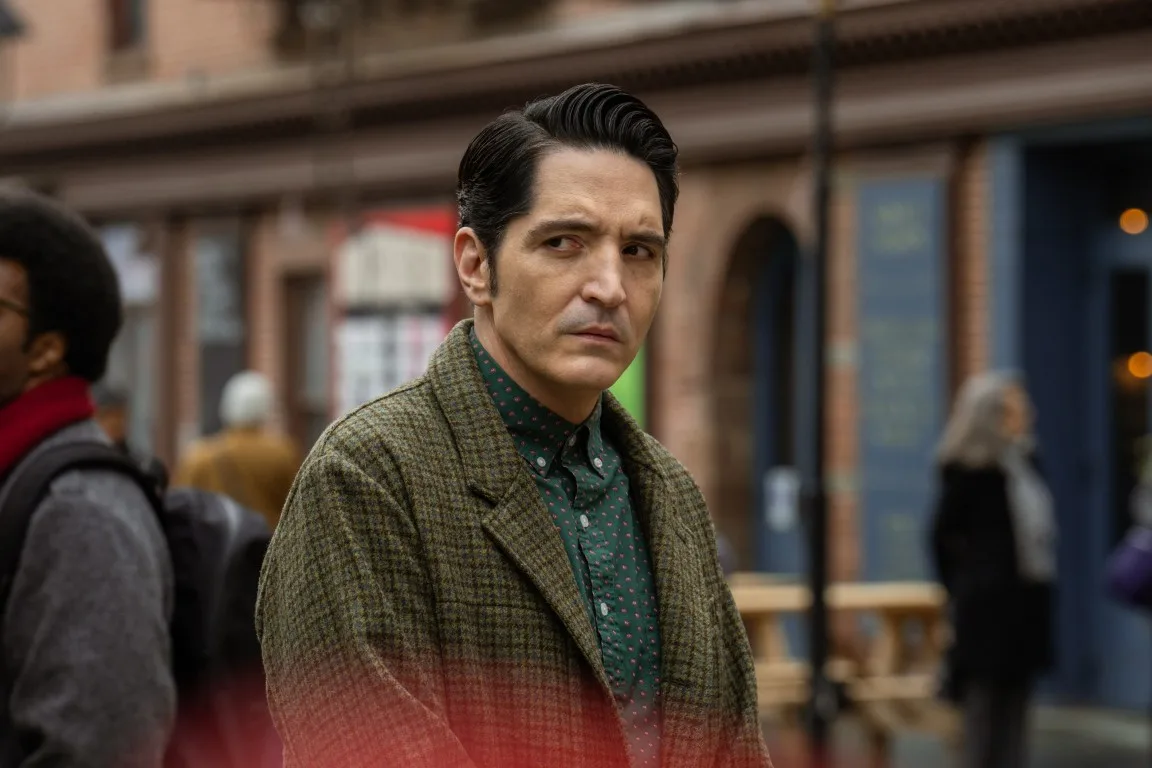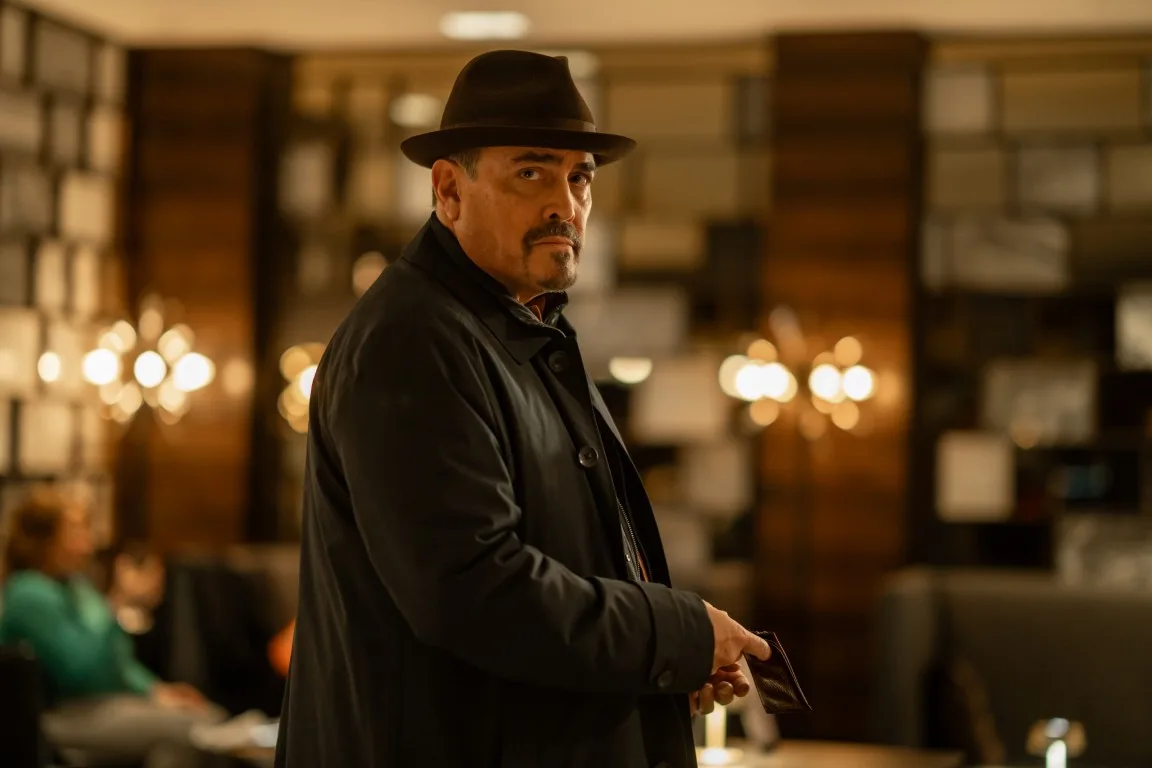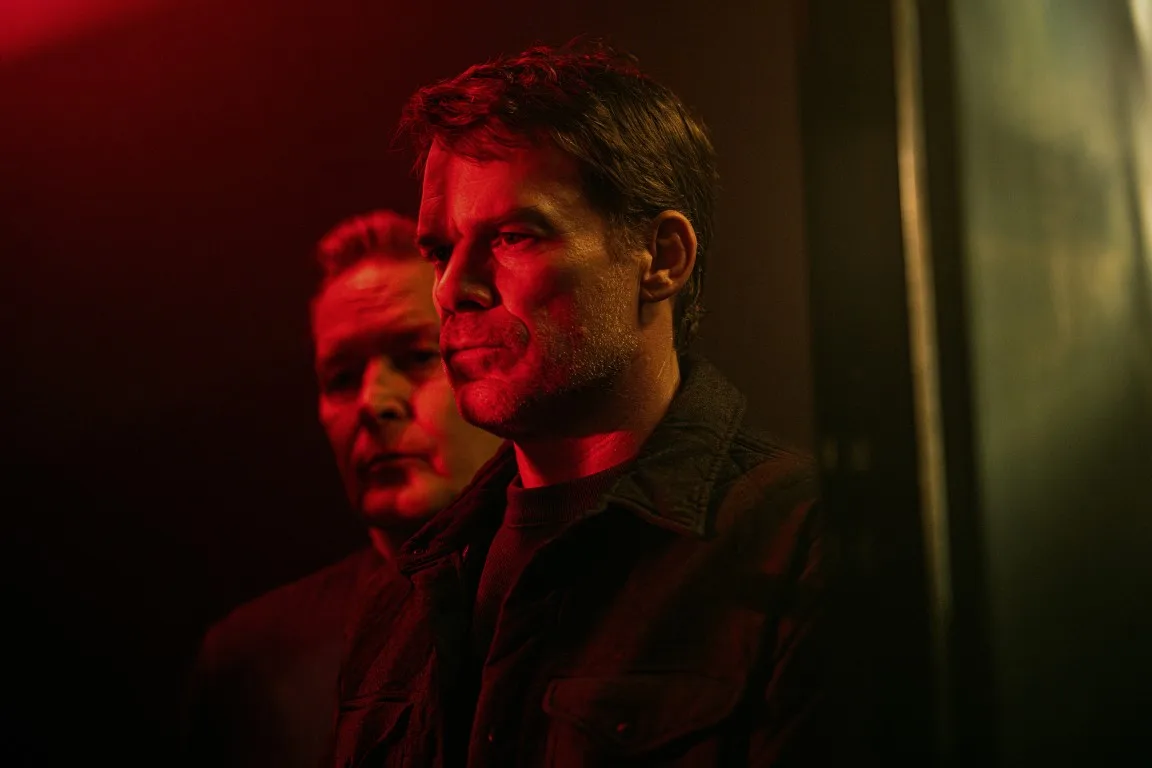Television history is rich with characters who help narrate and shape the story, reliably or otherwise, dating back to the first “Dragnet” in the 1950s and “The Many Lives of Dobie Gillis” (1959-1963), and continuing with such staples as “The Wonder Years,” “Sex and the City,” “How I Met Your Mother” and newer entries including “You” and “Reservation Dogs.” My favorite performance of the genre is Michael C. Hall’s dark, brooding, droll, and brilliant work in the “Dexter” universe, which continues with the blood-spattered and wildly entertaining (if occasionally bat-bleep bonkers) “Dexter: Resurrection.”
Hall returns to prime form as the signature character of his career, with Dexter sharing his thoughts with us via internal narration, hallucinations of pivotal characters from his past, and the steady presence of his late father Harry, played with a kind of ghostly warmth by James Remar. (Of course, Harry is a manifestation of Dexter’s subconscious, meaning both Hall and Remar are a combo-platter narrator.) Four of the 10 episodes of “Resurrection” were made available for review, and the good news for hardcore “Dexter” fans is that this latest iteration is rooted firmly in the haunting and bleak foundation of the original series.

“Dexter: Resurrection” picks up in the aftermath of the events of “Dexter: New Blood,” which found Dexter Morgan living as “Jim Lindsay” for 10 years in the quiet town of Iron Lake in upstate New York before his cover was blown and he was shot in the chest by his son Harrison (Jack Alcott). We assumed Dexter was dead and that was that—but we wouldn’t have a new batch of bloody adventures if that were the case, so we just have to go with the admittedly contrived but unavoidable gimmick that finds Dexter clinging to life in and experiencing some fantastically entertaining visions before he emerges from a 10-week coma.
What now? As one voice from the past tells Dexter, “Where you went wrong was thinking you could have it all. A family, and your Dark Passenger.” Should Dexter try to find and reconnect with Harrison, or slip into the ether and return to the long and lonely and deadly way of living by “The Code,” i.e., killing only those who are so depraved they have it coming?
With keen use of on-location set pieces, kinetic editing, and exquisite needle drops including “Bad Decisions” by the Strokes and “Red Right Hand” by Nick Cave & the Bad Seeds setting a Rotten Big Apple tone, New York City becomes the primary setting for the series, with Dexter tracking but keeping a safe distance from Harrison, who now works as a bell attendant at the the Empire Hotel (nice callback to Harrison’s mother Rita working as a concierge at a Miami hotel), and trying to suppress his own troubling visions and flashbacks. (Alcott has stepped up his game considerably here from his work in “New Blood,” creating a likable if deeply troubled character who might have inherited more of his father’s DNA than he’d want to admit.)
While Dexter takes a job that could serve as a possible vehicle for him to return to what he does best, Harrison tries to enjoy his close friendship with co-worker Elsa Rivera (a wonderful Emilia Suárez), live a normal life, and stay out of trouble. Good luck with that, kiddo.

In keeping with “Dexter” tradition, the guest-star roster is deep and incredibly talented, with Uma Thurman, Peter Dinklage, Krysten Ritter, Eric Stonestreet, Neil Patrick Harris, and David Dastmalchian all creating memorable turns in varying amounts of screen time. Among the standout new regular cast members: Ntare Guma Mbaho Mwine as Blessing Kamara, a rideshare driver who gives Dexter invaluable advice and welcomes Dexter into his family, and Kadia Saraf as Det. Claudette Wallace, who blasts “Stayin’ Alive” by the Bee Gees from her circumaural headphones as she investigates crime scenes with meticulous obsession. (“She sees things in ways we don’t,” says her partner, played by Dominic Fusa, to some fellow cops.) We also get the most welcome return of David Zayas as Angel Batista, who has only recently learned that his old friend and Miami Metro PD colleague, Dexter, didn’t perish in Hurricane Laura all those years ago.
The cinematography in “Resurrection” is exquisitely disturbing. The interiors of the hotel are bathed in autumnal tones of green, gold, and brown, which should be soothing but are somehow unsettling, as if the joy has been robbed from these hallways. A return visit to a cleaned-up crime scene is framed in glaring reds, as if the very walls will always be blood-stained. Production design is particularly notable in an extended sequence in Episode 4 that is WTF-level macabre. Of course, all of these things are window dressing to augment Hall’s simmering work as Dexter. He is Dark Kent—a super anti-hero who doesn’t wear a cape but will bundle you up in plastic wrap and end you if you deserve it.
“Dexter: Resurrection” will debut with two episodes on Friday, July 11 on streaming and on demand for Paramount+ subscribers with the Paramount+ with SHOWTIME plan, before its on-air debut Sunday, July 13 at 8:00 pm ET/PT. Remaining episodes will premiere weekly. Four of the 10 episodes were screened for review.












